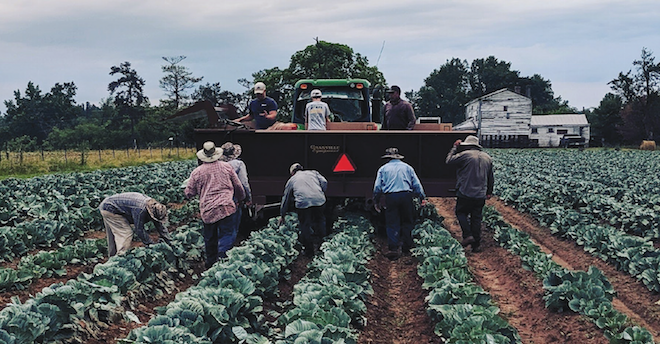May 3, 2023Michigan members of Congress oppose H-2A fee hikes
A bipartisan group of U.S. representatives from Michigan are asking the Department of Homeland Security (DHS) to reconsider proposed fee increases for employing ag workers in the H-2A temporary visa program.
On top of increases in the minimum wages for H-2A employees from the Department of Labor that went into effect Jan. 1, the DHS’ U.S. Citizenship and Immigration Services (USCIS) has proposed fee increases for immigration petitions, including those for the H-2A and H-2B programs. The H-2B program is for temporary workers for non-agricultural jobs, such as seasonal construction work.
The H-2A fees would go from $460 to $1,090 for named workers and $460 to $530 for unnamed workers. There’s also a new $600 Asylum Program Fee for certain work visas that would affect other industries as well.
According to the letter to DHS Secretary Alejandro Mayorkas, agriculture is a significant driver of Michigan’s economy, and growers in the state who use H-2A workers have a 12.8% hike in the Adverse Effect Wage Rate, which is the minimum wage for the program.
“While we understand the need for DHS to occasionally review visa fees, we believe such a sharp increase in fees would compound the impact of the increased costs the agriculture economy is facing right now,” according to the letter. “We are concerned this will make running an agricultural operation more difficult, limit job opportunities for Americans, raise prices for consumers, and harm our nation’s food security.”
The letter is signed by Republicans Lisa McClain, Jack Bergman, John Moolenaar, Tim Walberg and John James, and Democrats Dan Kildee, Elissa Slotkin, Rashida Tlaib, Hillary Scholten, Debbie Dingell and Haley Stevens.
Named vs. unnamed workers
Petitions for named workers are required to extend the time period for those already in the program in the U.S., according to a Western Growers blog post by Jason Resnik, senior vice president and general counsel. Petitions must also name H-2A workers who are in the U.S. between work periods with the same employer or plan to work for another employer.
“It is common for employers with multiple H-2A contracts to transfer workers from one contract to another rather than send the workers home and bring them or replacement workers back into the U.S.,” Resnik wrote in the blog.
The proposed fee changes also limit petitions for named workers to 25 employees, a move the DHS said is designed to remove “huge inequities” between petitions for small and large petitions, according to a March 2017 DHS Office of Inspector General report on H-2A and H-2B petition fees which proposed changes to the fee structure.
According to an analysis of petitions in the visa programs from October 2012 to February 2016, 11,011 of the total 13,293 H-2 petitions (83%) were for 1-10 workers. Collectively, these employers paid $325 per petition, for a total of more than $3.5 million. These small petitions covered only 29,766 of the 111,328 workers (27%).















